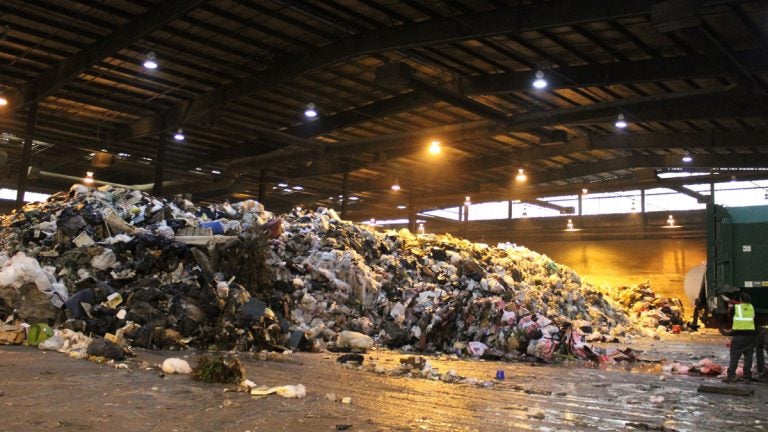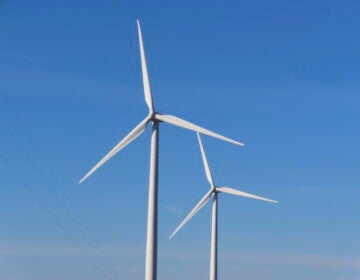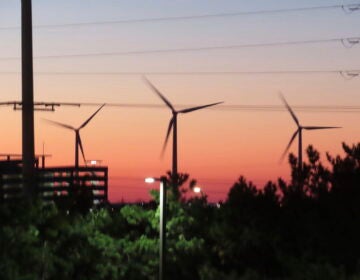Atlantic County could one day vaporize trash to energy

Trash piles up at Atlantic County Utilities Authority’s warehouse (Bill Barlow for WHYY)
In a large warehouse in Egg Harbor Township, New Jersey, trucks and front-end loaders are building a mountain of trash.
A quick glance at the pile reveals pizza boxes, pieces of unidentifiable rubbish sticking above the mound, and what appears to be a sofa.
Mostly, it consists of bags — thousands and thousands of clear, white and black plastic bags filled with household trash, packed with everything from coffee grinds to broken glasses, pizza crusts to outdated electronics, and an ever-growing amount of packaging.
This is one day’s worth of trash.
This giant heap is about to head to its final resting space, the Atlantic County Utilities Authority’s 100-acre landfill, about two miles southeast of Atlantic City’s airport. The landfill seems to go on forever. But with so much trash coming in every night, operators expect it will be completely full by 2026.
What will happen to garbage collected after that remains, for now, undecided. ACUA President Richard Dovey wants to bring in a high-tech incinerator that would essentially vaporize the refuse into a gas. Another option would be shipping the waste to one of the massive landfills in Pennsylvania and Ohio.
Plasma Gasification
The Atlantic County Utilities Authority wants to convert the disposal business into a trash-to-energy enterprise.
A rudimentary version of that goal is already in operation — methane produced by the landfill is captured and turned into usable energy. But it is not pure enough to use to power the vehicles used there, which rely on natural gas.
A proposal for “plasma gasification” lies further in the landfill’s future.
Dovey said it’s different from incinerating trash to produce steam, a model that has proved controversial and unworkable. In plasma gasification, extreme heat transforms material into synthetic gas, leaving behind a solid component called slag. But critics point to the considerable investment involved.
Recycle what we can
As the landfill gets closer to capacity, the authority is finding ways to reduce the trash it accepts. And not everything thrown out is useless.
Municipal workers are setting aside yard waste, brush, and old Christmas trees to be chopped into mulch. They are also sorting and baling any recyclable items that can be sold as raw materials. Aluminum cans are the easiest and most profitable, according to the staff.
WHYY is your source for fact-based, in-depth journalism and information. As a nonprofit organization, we rely on financial support from readers like you. Please give today.





